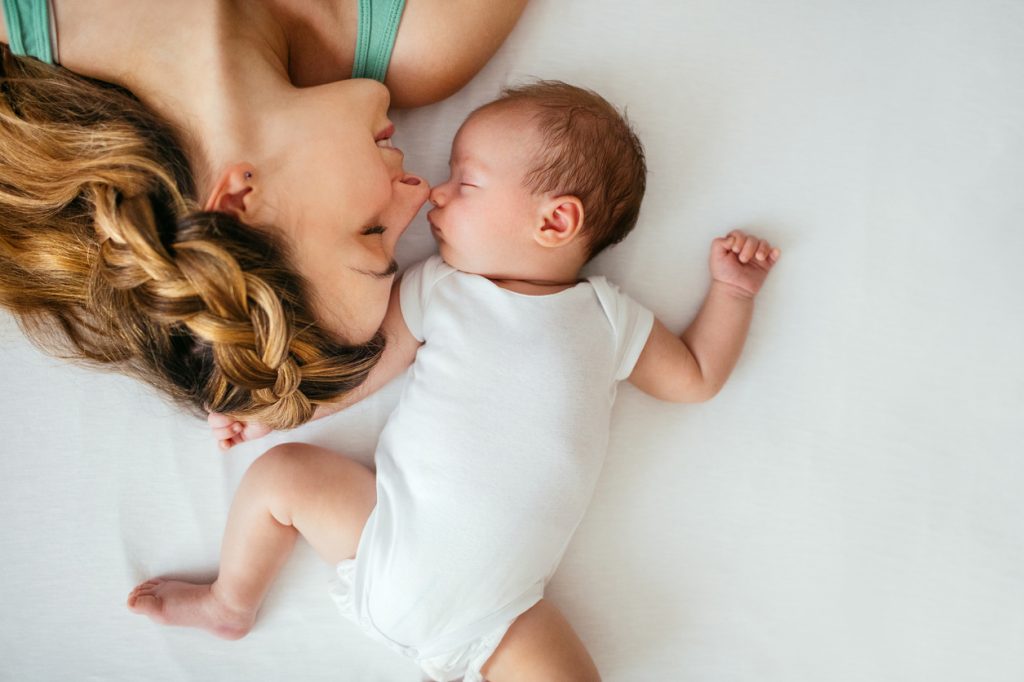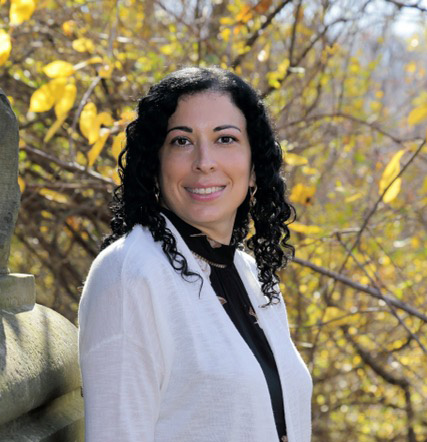Do I Have the Right to Complain About Motherhood After Infertility?

I can see the light at the end of the tunnel.
This is a phrase I’ve been repeating a lot lately. With my oldest child in his second year of Kindergarten and my three-year old potty-trained and getting more independent by the day, I’m beginning to see the all-encompassing, exhaustion-filled days of parenting young children fade into the background. And I’m not at all sad about it.
But there was a time, a very long time in fact, where I was sad and my dark tunnel consisted of not having kids to care for. While I was trying unsuccessfully to get pregnant, I was envious of tired, ragged moms who had babies and toddlers to love. Well-rested and with loads of free-time, I would have traded places with them in a heartbeat.
Now with two kids and five years of motherhood behind me, I try hard not to complain. If I do, I feel guilty about it. That all too familiar voice whispers in my ear — Remember how badly you wanted this? Remember all that you went through to get here?
How could I possibly forget seven am doctor’s appointments, ultrasounds, needles, and countless negative pregnancy tests. After a quick trip down memory lane, it doesn’t take me long to snap out of it, bend down and pick up that toy for the tenth time, scrape off dried up Cheerios from the kitchen floor or drag myself out of bed to comfort a crying, feverish child.
Even more effective is to focus my thoughts on those still in that dark, lonely place trying and failing, and waiting to get their take-home baby. Knowing first-hand the pain and frustration they are feeling, I ask myself, What right do I have to complain?
Women who parent after infertility often feel like they’re being unappreciative or that they’re squandering their blessings if they say aloud what other moms might say more freely. In her book, The Long-Awaited Stork. A Guide to Parenting after Infertility, Ellen Sarasohn Glazer points out that “the parent-child relationship, like all other intimate relationships is an ambivalent one.” The same child who causes your heart to dance with joy, she argues, can easily frustrate and infuriate you. She explains that those who parent after infertility often feel guilty for having negative feelings toward their child and fear that they’ll be punished or have their child taken away if they voice these feelings.
When my first child was born, a friend who is a doula as well as a parent and family counsellor came to visit me. She held my newborn son in her arms and listened to me cry about the challenges of breastfeeding, the sleep deprivation and the anxiety I was feeling over taking care of a helpless little human. She encouraged me to let it all out, and that my feelings were completely normal. She also told me that this precious child, who took me seven years to conceive, would one day make me angry and test my patience in a way that I had never know before. I couldn’t picture, not in that moment, but that long-awaited child and his younger brother after him, have tested and challenged me and I’m starting to realize that acknowledging this does not make me a bad mother.
Glazer also talks about the pressure that infertile parents feel to be “super parents”. As a stay-at-home mom, I spend a large portion of my day with my children and as much as I need time away from them, I do feel guilty about wanting it. I also feel bad about not being completely engaged with them when we are together. Sometimes, when the three of us are sitting together watching TV, I immediately begin to rattle off a series of questions in my head: Did we read today? Engage in imaginary play? Get outside for fresh air? Even though I know it’s perfectly okay to sit and relax and watch a TV program or two.
I am not a super parent and I’m pretty sure my kids don’t expect me to be one.
Most parents feel guilty about wanting to spend time alone, or if they lose it after a long hard day, but for those of us coming to parenthood after a struggle, there is always that added guilt… and that isn’t always fair. The next time I’m socializing with a group of moms, I’ll share my thoughts on the downside of motherhood too. I might not be the first one to chime in, and I may even just nod in agreement but I’m learning not to feel guilty about expressing what I feel.
I’ve come to realize that my children can be precious and infuriating at the same time. I also understand that my dark tunnel will change as my kids mature and grow, and I’ll always be looking towards the light. And that’s perfectly okay.
















